In Our House
Breaking Open Marcus Gardley’s The House That Will Not Stand through Public Programs and Community Partnerships
Marcus Gardley is the Playwright-in-Residence at Victory Gardens Theater through the National Playwright Residency Program, funded by the Andrew W. Mellon Foundation. Find out more about his residency experience here and learn about the impact of the program at large here.
Victory Gardens Theater ended its forty-first season with the Chicago premiere of Playwrights Ensemble member Marcus Gardley’s The House That Will Not Stand. From historical narratives to Federico Lorca’s The House of Bernarda Alba, Marcus Gardley pulls from several influences in crafting his New Orleans-based drama. Traditionally, Victory Gardens Theater creates approximately eight to ten public program events to run alongside main stage season programming, partnering with approximately 200 community partners per season. These events (post-show panels, pre-show performances, town hall events, and many others) deconstruct and explore themes present in the plays. With shows written by Marcus (The Gospel of Lovingkindness and An Issue of Blood), these programs are in direct conversation with the social and political framework in which Marcus crafts his plays; he is a co-creator alongside our community partners for these events.
Check out this photo journal tracking the audience and community engagement that occurred during the run of the show.
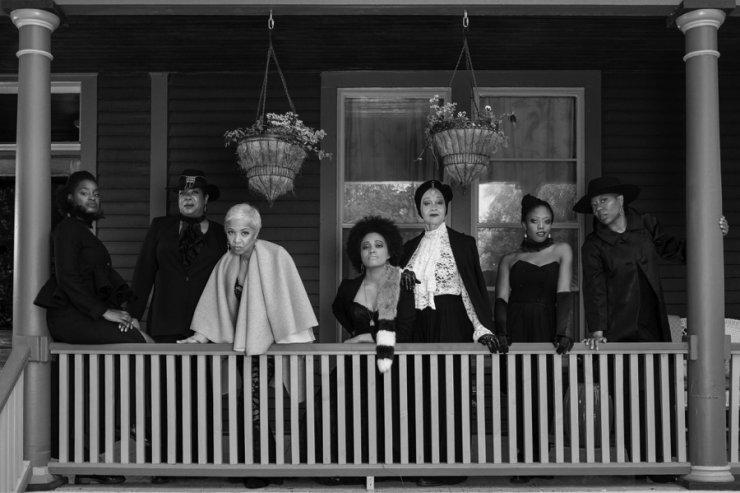
This is civic dramaturgy—a community’s response to the work as it relates to their everyday lives, inspired and buoyed by the art they experienced together.
During our “Backstage at the Biograph” open rehearsal event, Artistic Director Chay Yew talked to audience members , centering on the collision of pop culture influences in the design and production elements of this historical drama.
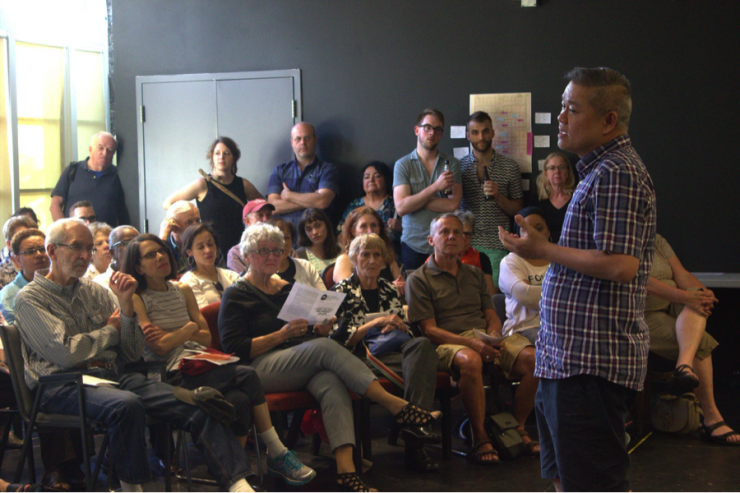
On Thursday June 30th, a pre-show Public Program #Lemonade, a celebration of black girl magic took place at Victory Gardens. The lobby swelled with audience members and artists, creators, and witnesses side by side. The painting below began at the start of the evening as an outline in the sketchbook of Tita Thomas, but as the event began to gather steam, so did her painting. Paint smeared, water poured, and by the end of the night a blank canvas became a dialogue between Beyoncé’s album and the women artists’ work being done in the theater. The event was co-curated by Chicago playwright and activist Kristiana Rae Colón, pulling themes of #BlackGirlMagic resonant in Gardley’s new play.
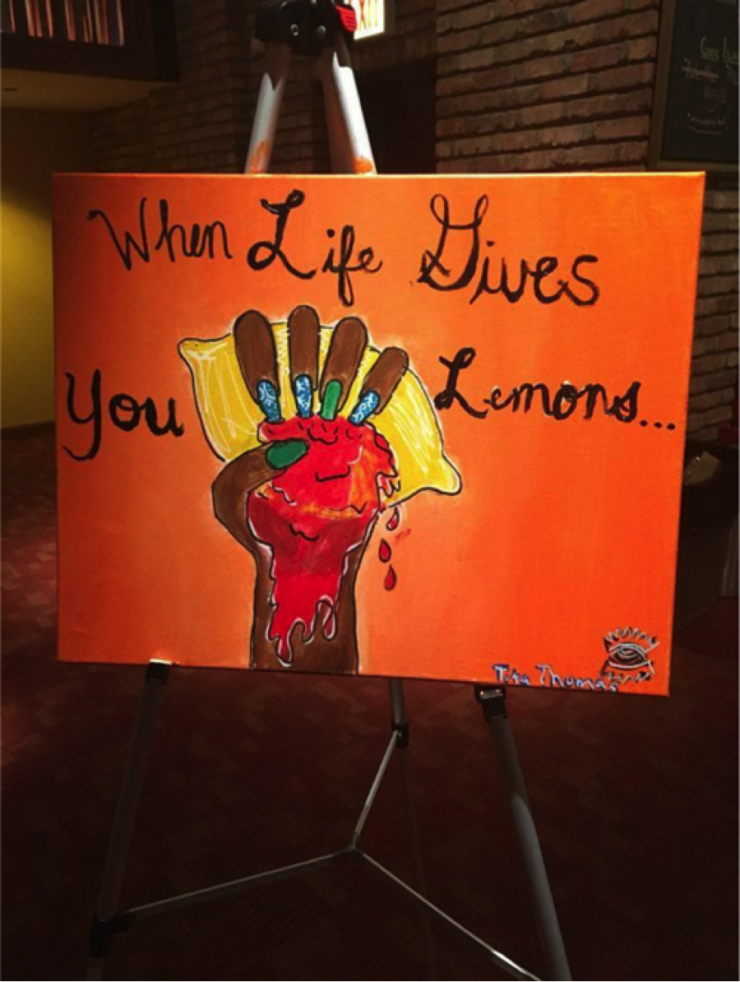
While live painting by Tita Thomas was happening in the lobby, Tarot reading by Jasmine Barber took place by the entrance, Angelique Nelson gave Reiki massages in the upstairs rehearsal room, and spoken word artists Ireon Roach, E’mon Lauren Black, Kristiana Rae Colón, and Kiara Lanier performed original pieces in the lobby.
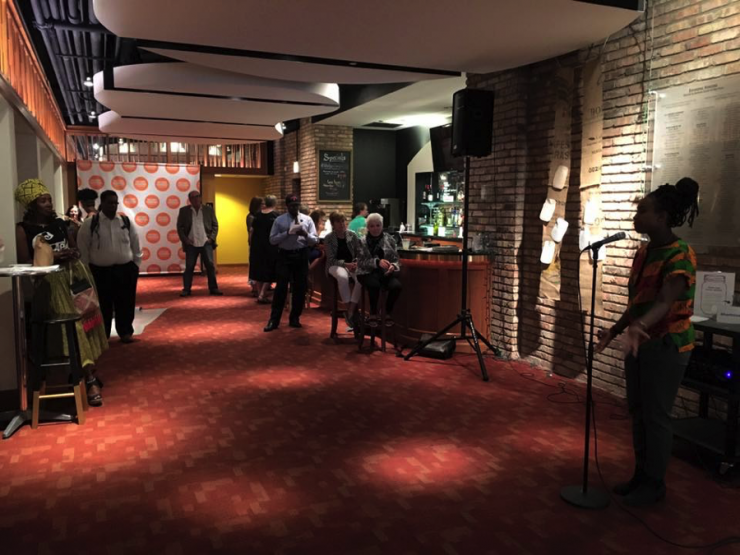
Survival. Ownership. Visibility. In The House That Will Not Stand, young women are paired with potential suitors not out of love or desire but out of the necessity to survive. For Black queer women, wearing the visibility of one’s queerness can carry power as well as controversy in a society that shames them for who they are. Transcending that shame to step fully into one's power can take a lifetime. Until recently, many Black queer women haven't come out until they're well into adulthood. Out OutLoud Public Program event in partnership with Imani Rupert-Gordon and Affinity, a social justice organization that focuses on health and wellness, leadership development, and community building bridged the generational gaps between black queer women today.
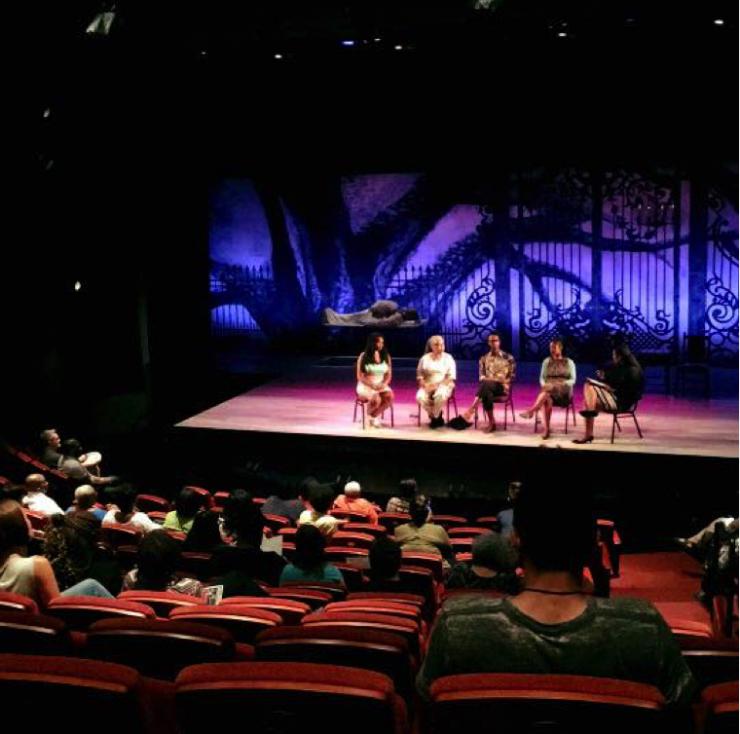
Actress and Free Women of Color Fest founder Patrese McClain led a performance and town hall forum on equity and representation of black women in historically white theater companies during an off-night of Gardley’s New Orleans drama. This off-night town hall and performance celebration was a Call to Action that put #BlackGirlMagic at the forefront of the American theater landscape.
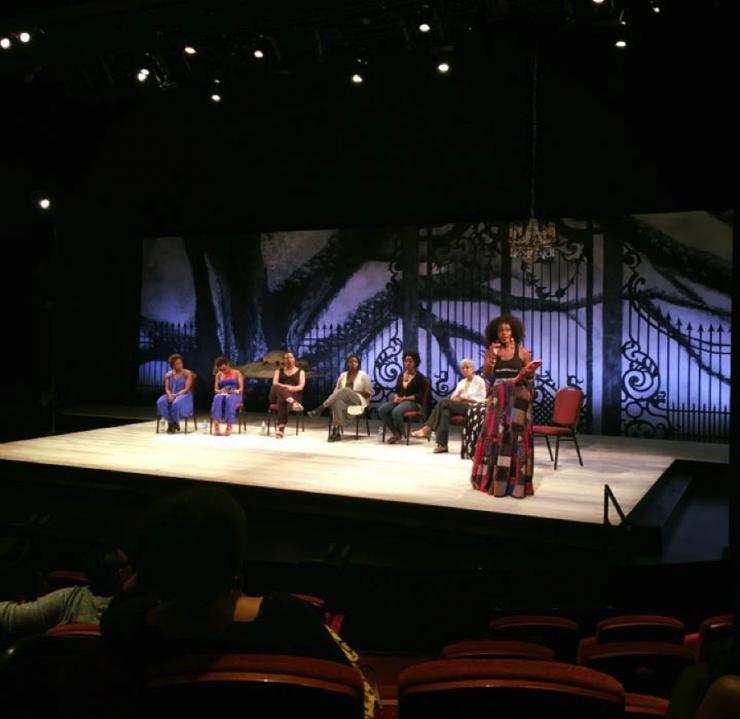
From la bomba to the bamboulas, Council of Community Leaders member Adriana Diaz spearheaded a discussion centering on the Afro-Latinx experience as it relates to themes and production components in The House That Will Not Stand.
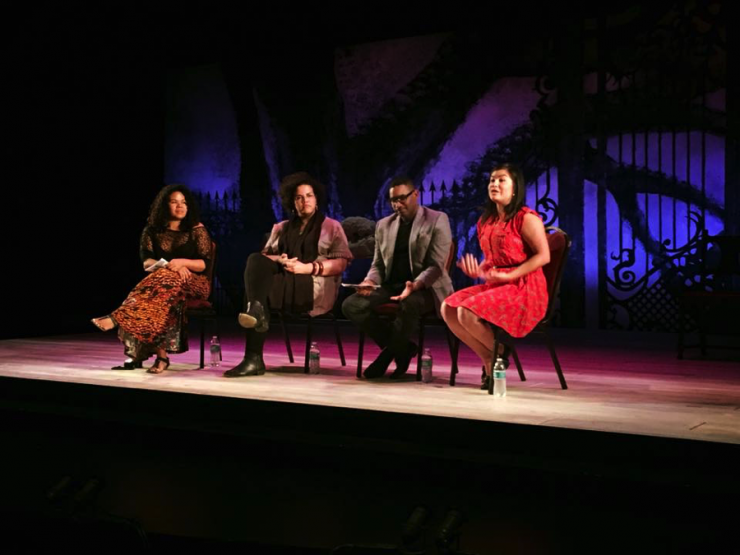
In the 1800’s, women of color often entered into Plaçage’s, common-law marriages with European men as an alternative to slavery which included sex, abuse, and inheritance of wealth and land which were often essential to survive. Two thousand years later, what do we do to our bodies in order to survive? This underexplored post-show conversation centered on demystifying myths and shedding light on sex work and sex trafficking in our world today.
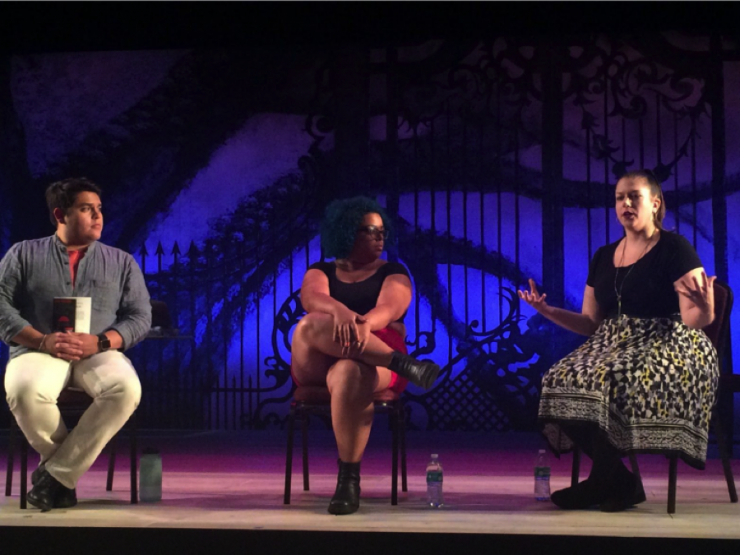
In The House That Will Not Stand, Odette makes a stunning discovery that as a dark-skinned woman, the chances of her being placed as a white man’s placée were slim to none. This form of discrimination is known as colorism: prejudice or discrimination against individuals with a dark skin tone, typically among people of the same ethnic or racial group. This essential conversation featuring the ensemble explored how colorism has affected our past and continues to influence our present.
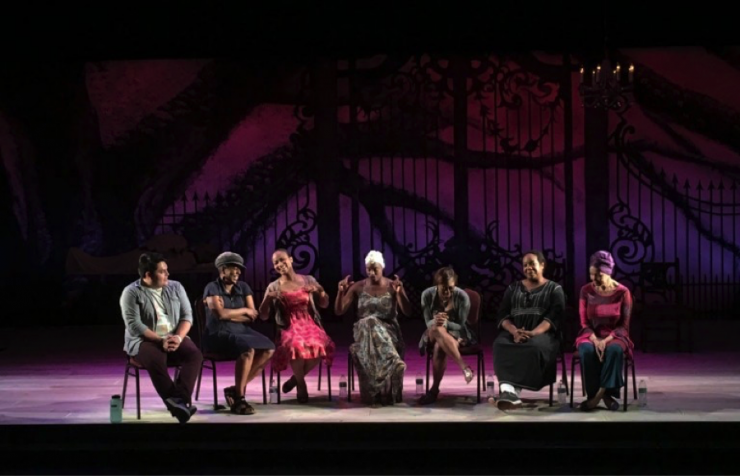
From a Town Hall on representation of black women in the American theater to a pre-show #BlackGirlMagic event, we offered the opportunity to talk about these issues as a collective, finding ways to move forward as a community; to celebrate our “wins” and to recalibrate from our losses.
This is civic dramaturgy—a community’s response to the work as it relates to their everyday lives, inspired and buoyed by the art they experienced together. When practicing theatre for social change, subsidiary programming and pre/post-show experiences need to function differently than they do for other shows. The conversation becomes less about the work as an artistic entity, and acts more as a call-to-action and an examination of our collective experience.
This was definitely an adjustment for patrons who anticipated hearing artistic choices from the director, playwright, and designers. But for our audiences who chose to stay for these events, Victory Gardens’ provided a brave space to have an open dialogue about these complicated issues in hopes that our audiences left with a sense of responsibility to make greater change in ways they never anticipated; theatre acting as a motor for social change.

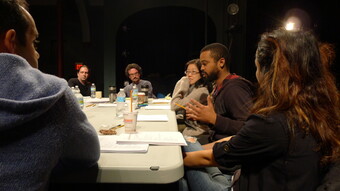

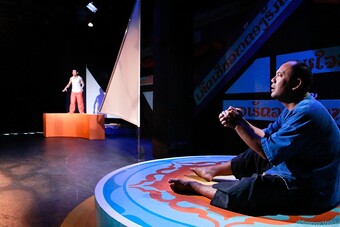





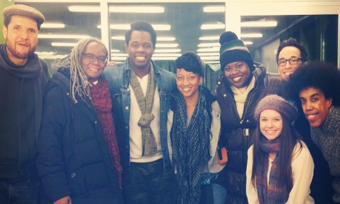


Comments
The article is just the start of the conversation—we want to know what you think about this subject, too! HowlRound is a space for knowledge-sharing, and we welcome spirited, thoughtful, and on-topic dialogue. Find our full comments policy here